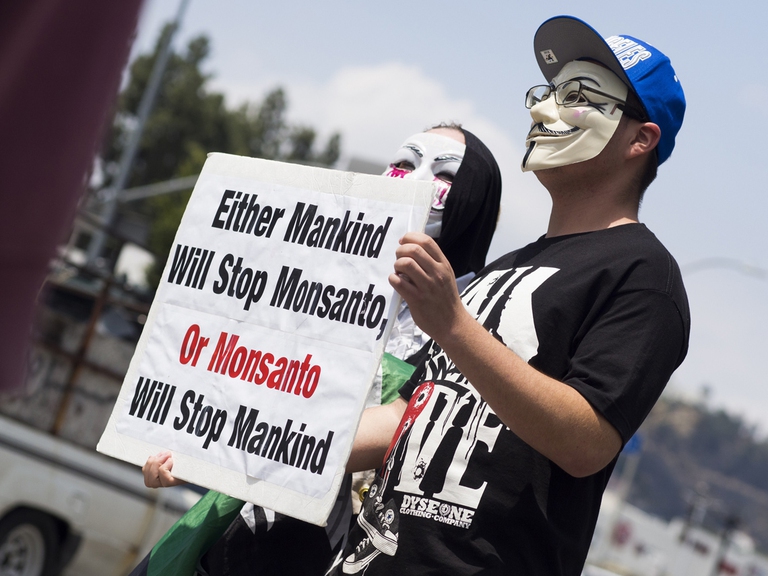
South African court dismisses a major lawsuit by 140,000 Zambian women and children against Anglo American for Kabwe lead poisoning. A setback for affected communities enduring the lasting impact of lead contamination.
Monsanto has said yes. After 5 months of negotiations and hesitations, the US company has accepted Bayer’s offer of 66 billion dollars, debt included. So, the value of each share is now 128 dollars, up from Bayer’s previous offer of 127.50 dollars a share. In addition, the German pharmaceutical company has pledged to pay a
Monsanto has said yes. After 5 months of negotiations and hesitations, the US company has accepted Bayer’s offer of 66 billion dollars, debt included. So, the value of each share is now 128 dollars, up from Bayer’s previous offer of 127.50 dollars a share. In addition, the German pharmaceutical company has pledged to pay a 2-billion-dollar commission in case antitrust authorities block the huge operation. On 14 September, as reads the announcement published on Bayer’s website, Bayer and Monsanto announced that they signed a definitive merger agreement, which is expected to be closed by the end of 2017.
It all started in May, when Bayer offered 62 billion dollars (122 dollars a share) in an all-cash transaction, unsuccessfully. In July, the German company offered 64 billion dollars (125 dollars a share), but Monsanto said no, once again. However, the pharmaceutical giant didn’t stop and its latest offer has been successful. To Monsanto’s shareholders, 128 dollars per share represent a 44-percent premium compared to Monsanto’s share price on May 9, the day before it made its first proposal. Bayer has declared that it wants to finance the operation with a combination of debt and equity. What’s left now is the approval of Monsanto’s shareholders and antitrust authorities.
The hurdle represented by the antitrust authorities is anything but insignificant. Over the last few months experts have warned that a giant like “Bayersanto” could upset the world of agriculture. The agrochemical industry, which is worth 85 billion euros, is already controlled by a handful of players. And it is destined to become ever more oligopolistic, considering the ongoing negotiations for the mergers of Syngenta-Chemchina and Dow Chemical-DuPont. The merger between Bayer and Monsanto will give life to the world’s number one giant that will control 24 per cent of the market of pesticides and 29 per cent of that of seeds.
The future is still unclear, but some consequences are easy to be imagined, from the increase in prices (for both producers and consumers) and a decrease in the offer (and, as a result, biodiversity). Moreover, Bayer is likely to have already put its eyes on the world of GMOs, with the aim of “wiping out” the name of Monsanto, which has long been associated with GMOs, as an effective marketing choice.
Siamo anche su WhatsApp. Segui il canale ufficiale LifeGate per restare aggiornata, aggiornato sulle ultime notizie e sulle nostre attività.
![]()
Quest'opera è distribuita con Licenza Creative Commons Attribuzione - Non commerciale - Non opere derivate 4.0 Internazionale.
South African court dismisses a major lawsuit by 140,000 Zambian women and children against Anglo American for Kabwe lead poisoning. A setback for affected communities enduring the lasting impact of lead contamination.
Controversial African land deals by Blue Carbon face skepticism regarding their environmental impact and doubts about the company’s track record, raising concerns about potential divergence from authentic environmental initiatives.
Corporations are putting our lives and our environment at risk through a growing and improper influence over institutions, whose responsibility should be, instead, protecting people and the planet. The visible consequences have made it imperative to expose their devious tactics and their steadfast and corrupt lobbying, recently revealed in the Poison Papers (a compilation of over
Majuli, the world’s largest river island in Assam State of India is quickly disappearing into the Brahmaputra river due to soil erosion.
Food imported into the EU aren’t subject to the same production standards as European food. The introduction of mirror clauses would ensure reciprocity while also encouraging the agroecological transition.
Sikkim is a hilly State in north-east India. Surrounded by villages that attracts outsiders thanks to its soothing calmness and natural beauty.
Sikkim, one of the smallest states in India has made it mandatory for new mothers to plant saplings and protect them like their children to save environment
Chilekwa Mumba is a Zambian is an environmental activist and community organizer. He is known for having organized a successful lawsuit against UK-based mining companies.
What led to the Fukushima water release, and what are the impacts of one of the most controversial decisions of the post-nuclear disaster clean-up effort?








